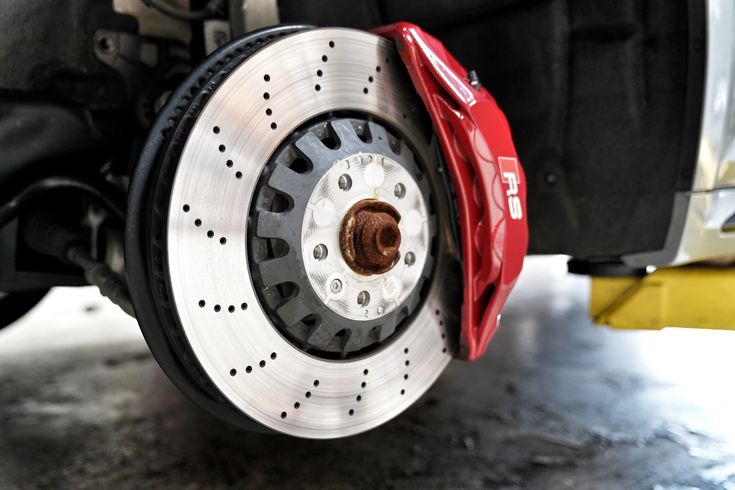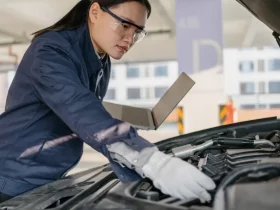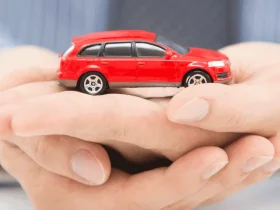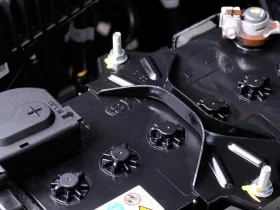When it comes to the safety and performance of your vehicle, the condition of your rotors is crucial. The rotors, also known as brake discs, play a vital role in stopping your car.
Rotors can wear out or become damaged, leading to potential safety hazards and reduced braking efficiency.
Dangers of driving with bad rotors
Driving with bad rotors can pose serious risks to both your safety and the overall performance of your vehicle. Bad rotors can cause your car to take longer to stop or make it harder to bring your vehicle to a complete halt, especially in emergency situations.
This increased stopping distance can be a critical factor in avoiding accidents and keeping yourself and others on the road safe. It is essential to address the issue promptly to ensure your safety and the longevity of your vehicle.
Signs of bad rotors
Signs of bad rotors can manifest in various ways, indicating that it’s time to address the issue promptly. One of the most noticeable signs is a pulsating or vibrating sensation when applying the brakes. If you feel a pulsation in the brake pedal or steering wheel
This noise can occur due to the brake pads wearing down unevenly, causing metal-to-metal contact with the rotors. Furthermore, if you notice that your vehicle takes longer to stop or requires more effort to bring it to a complete halt.
Consequences of driving with bad rotors
Driving with bad rotors can have serious consequences for both your safety and the overall performance of your vehicle. One of the main risks is compromised braking ability. Bad rotors can lead to uneven wear and tear on your brake pads.
This can significantly increase your braking distance and the time it takes to bring your vehicle to a halt. In emergency situations, this delay could be the difference between avoiding an accident and potential disaster.
Driving with bad rotors can cause damage to other components of your braking system. As the rotors become more worn or warped, they can start affecting the brake calipers, brake lines, and even the master cylinder.
Moreover, the constant vibration and pulsation caused by bad rotors can also affect the suspension system and other parts of your vehicle.
Tips for prolonging the life of your rotors
Now that you understand the importance of addressing bad rotors promptly, let’s discuss some tips that can help you prolong the life of your rotors and minimize the risk of encountering this problem again in the future.
1. Practice gentle braking:
Avoid slamming on the brakes whenever possible. Applying excessive force can cause unnecessary wear and tear on the rotors. Instead, try to brake gradually and give yourself enough time and distance to come to a complete stop.
2. Avoid sudden stops:
Just like aggressive braking, sudden stops can put excessive stress on the rotors. Whenever possible, anticipate stops ahead of time and try to slow down gradually.
3. Minimize driving in stop-and-go traffic:
Constantly stopping and starting in heavy traffic can increase the strain on your rotors. When possible, try to find alternate routes or time your commute to avoid congested areas.
4. Have your brake system regularly inspected:
Regular maintenance and inspections are crucial for catching any potential issues with your brake system, including worn or warped rotors. Schedule routine check-ups with a trusted mechanic to ensure that your rotors are in good condition.
5. Avoid excessive towing or carrying heavy loads:
If your vehicle requires towing or frequently carries heavy loads, it can put extra strain on your rotors. Whenever possible, try to reduce the weight being carried or consider alternative methods of transportation.
Repairing or replacing your rotors
Despite your best efforts to prolong the life of your rotors, there may come a time when repair or replacement becomes necessary. It’s important to recognize the signs indicating that your rotors are beyond the point of regular maintenance.
One common sign is vibration or pulsation in the brake pedal when you apply the brakes. This can be an indication that your rotors are warped or unevenly worn.
When it comes to repairing or replacing rotors, it’s always best to consult with a professional mechanic. They will assess the extent of the damage and recommend the appropriate course of action.
Bad rotors promptly and ensuring that they are in good condition is crucial for your safety on the road. Don’t hesitate to seek professional help when needed to keep your vehicle running smoothly and securely.
Conclusion
Maintaining the health of your vehicle’s rotors is paramount to ensuring your safety on the road. While it can be tempting to prolong repairs or replacements when faced with bad rotors, it’s important to address the issue promptly.
Vibration or pulsation in the brake pedal, along with squealing or grinding noises when braking, are clear signs that your rotors are in need of attention. Ignoring these signs can lead to further damage and compromise the effectiveness of your brakes.
To determine the best course of action, seek the advice of a professional mechanic. They have the knowledge and expertise to accurately assess the condition of your rotors and recommend the appropriate repair or replacement.










Leave a Reply